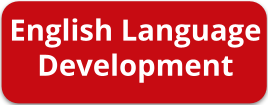Because most colleges and universities are increasing admissions requirements, and leaders of business and industry are concerned about the academic preparation of those people entering the work force, the faculty and administration at Woodbridge High School expect all students in grades 9-11 to enroll in six courses during each year of high school. Seniors who have sufficient credits may opt for a less demanding year and may enroll in 5 classes in the fall and 5 classes in the spring with the option of 1 taken off campus (ie. ROP, community college). However, students can expect this reduced commitment to be communicated in letters of recommendation. Institutions of higher learning report a direct correlation between academic success at the university and the maintenance of a rigorous course of study during the senior year in high school.
UNITS OF CREDIT/VARIABLE CREDIT
Credits are awarded on a semester basis. Successful completion of a course earns credits towards graduation. A course taken for one semester, one period each day normally earns five semester credits towards graduation. (A limited number of courses earn variable credits or less than five credits). Therefore, a student will typically earn thirty credits each semester, or sixty credits each year.
Exceptions:
a. Physical Education, Athletics, and Student Aide — a student who participates in at least 80% of the term will receive full credit. Less than 80% participation
or work accomplished will receive the variable credit basis listed below.
Credits:
Per Semester Class
80% — 100% = 5 credits
70% — 79% = 4 credits
60% — 69% = 3 credits
50% — 59% = 2 credits
35% — 49% = 1 credit
Per Quarter Class
80%— 100% = 2.5 credits
70% — 79% = 2.0 credits
60% — 69% = 1.5 credits
50% — 59% = 1.0 credits
35% — 49% = 0.5 credits
b. Community/Work Experience — 40 hours of work plus specified related assignments = 1 credit; maximum of 10 credits per semester, 20 credits maximum for graduation. Grade 12 only.
c. ROP — Course credit varies. Check the ROP course catalog for credit information.
d. Other courses which award variable credit: Support Services/Special Education courses, Private Instruction, Independent Study, and Student Assistant courses.
PREREQUISITES/PERMISSION
Students should check carefully to see that they have taken the proper prerequisites for courses and have received the necessary grades. Where a course prerequisite requires permission, the student should seek approval to take the course from their current teacher.
ADDITION AND WITHDRAWAL OF CLASSES
The WHS master schedule of classes is carefully designed every year so we can honor both the requests made by students, and the recommendations of the faculty.
Woodbridge encourages every student to strive for academic excellence. We urge students and their parent or guardian to carefully select classes for the upcoming school year. Our master schedule has little to no space available for a class change. If you believe, after attempting a class, you are misplaced academically, please carefully discuss this with your teacher, parent or guardian, and counselor. Woodbridge is committed to student success, and we will seriously consider a recommended class change that is
in your best academic interests. Options will be severely limited, based on space in the master schedule.
The last day to enroll in a new or different class is the final day of the second full week of the semester. Any class change after this date must be initiated and recommended by a faculty member. Please refer to the student planner for exact dates.
The last day to withdraw from a class without penalty of a failing grade on your transcript is the last day of the sixth full week of the semester. We encourage students to remain in class and make every effort to achieve a passing grade.
Any withdrawal must be recommended by a faculty member, and must be approved by parent or guardian, counselor and administrator. Any withdrawal that occurs after the last day of the sixth week of the semester will result in a permanent grade of “F” on your transcript.
If an academic level change (for example, from Spanish 2 to Spanish 1) is recommended by a faculty member and approved by your parent or guardian, no grade penalty will occur. However, the transfer grade will follow the student.
Please see the Course Add/Drop Deadlines for Fall and Spring:
TEACHER CHANGE REQUEST POLICY
WHS currently implements a “no teacher change” policy. This policy is designed to work with all stakeholders (parents, students, and teachers) to facilitate problem solving and resolve conflict. Administration requires that a parent/ teacher conference is held to address specific concerns prior to requesting a change of teacher. Counselors and/or administrators can attend teacher conference meetings, if requested. If specific issues are discussed with the assigned teacher and remain unresolved, parents/students can contact administration to discuss the unresolved issues further.
Counselors are unable to adjust student schedules to a new teacher, unless approved by an administrator.
SPRING SEMESTER SCHEDULE CHANGES
Although students can be assured that their assigned courses from fall to spring semester are to be maintained, students may be assigned different teachers and/or periods for their courses in the spring semester. On average, nearly 20% of WHS students experience a teacher or class period change, at the semester, in any given year. These changes may be due to increased or decreased enrollment after the school year begins, additional funding to add class sections to both bring class sizes down and increase access to certain course offerings that were full, and to account for staffing. Students requesting to return to their previously assigned schedule will be denied. Counselors are unable to adjust student schedules in this circumstance, unless approved by an administrator.
REPEATING COURSES
a. A student may repeat Student Assistant for a maximum of 10 credits for graduation. Students receive variable credit based on attendance and participation. Refer to the Student Assistant Contract for the complete list of requirements. Students may only be enrolled in one period of student assisting at a time.
b. Some courses in Career and Technical Education, Performing Arts, Physical Education, and special programs such as Yearbook, Leadership and Journalism may be repeated for credit with instructor’s approval.
c. A student may wish to retake a course to improve their grade. In this case credits are not awarded again, and the new grade as well as the old grade will appear on the transcript. If the first grade is a D or F, only the better grade will be included in your GPA. If the original grade earned is a “C” or higher, the original grade will not be replaced.













